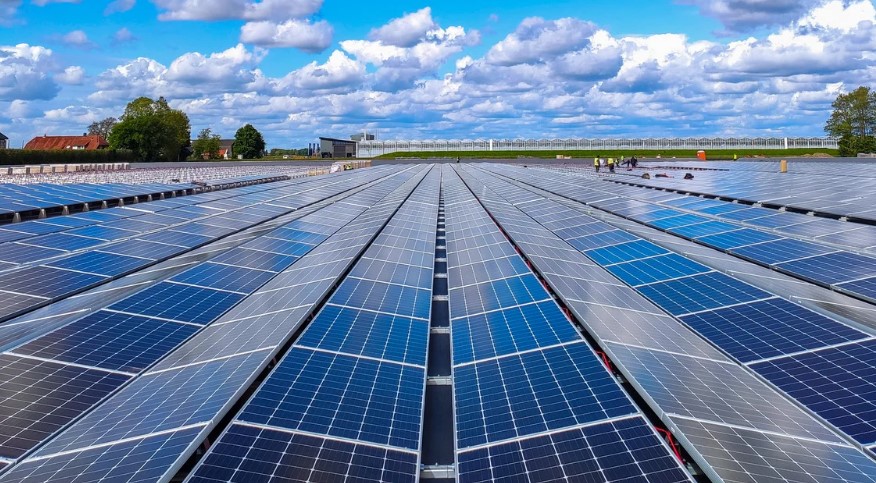If you want to install solar panels onto your roof, you may have come across the term MCS certificate. But what is it, and why is it essential for both consumers and installers? The MCS certificate is a legal requirement and a guarantee to consumers that the solar panels and installation meet certain quality and safety standards. In this guide, we will take a deep dive into everything you need to know about the MCS certificate, including eligibility requirements, what services it covers, and how to apply for one. We will also discuss the cost and timeframe for obtaining an MCS certificate and alternatives to consider. After reading this post, you’ll be fully informed about the MCS certificate and able to make an educated decision before investing in solar panels for your home or business.
What is the MCS Certificate?

The MCS (Microgeneration Certification Scheme) is a nationwide quality assurance scheme for microgeneration technology. It is supported by the Department for Business, Energy, and Industrial Strategy (BEIS) and is the standard regulator in the renewable energy and heating industry. An MCS certification ensures that the installer has the knowledge to install solar panels and other equipment safely and efficiently. One benefit of enlisting an MCS-certified installer’s services is that it guarantees the homeowner the ability to qualify and receive financial incentives such as the Feed-in Tariff and Renewable Heat Incentive.
The MCS Certificate sets standards for both products and installers, giving consumers the confidence to invest in green technology that meets the latest standard. The MCS Certification Scheme is now widely recognised by energy companies, suppliers, and government bodies. When choosing an MCS-certified installer, the certification should guarantee that the installer has passed the technical exams and has a comprehensive understanding of the installation process.
Why is the MCS Certificate Important for Homeowners?

MCS (Microgeneration Certification Scheme) is a nationally recognized quality assurance scheme that outlines strict manufacturing and installation standards for microgeneration technologies. If you are a homeowner who has opted for renewable energy technologies such as solar panels, wind turbines, or heat pumps, an MCS certificate is an essential document to have. It is required to avail of financial incentives such as Feed-in Tariffs and Renewable Heat Incentives. Moreover, companies dealing with renewable heat products must be MCS accredited.
Failure to adhere to these standards can cost the installer thousands of pounds. Not all solar panels and installers require an MCS accreditation, but it’s worth being cautious while dealing with them. Homeowners who intend to fund incentive schemes like Smart Export Guarantee must have an MCS certificate for their solar panels. Hence, homeowners must opt for MCS-accredited products and installers to get the most out of their investment.
How Do You Get an MCS Certificate for Your Solar Panels?

To earn an MCS certificate for your solar panels, you must commission your installation through an MCS-certified company that uses certified materials. The Microgeneration Certification Scheme (MCS) is a government-supported scheme that certifies microgeneration products. The installation process must follow specific quality standards to ensure continuous certification. An MCS certificate is required to qualify for financial incentives like the Feed-in Tariff and Renewable Heat Incentive.
The certification’s consistency of quality standards ensures that homeowners receive excellent service and quality products. As a result, MCS certification allows homeowners to participate in government-funded schemes and feed-in tariff programs after installing a solar power system.
Eligibility Requirements for Obtaining an MCS Certificate

MCS certification is not a legal requirement, but it is nationally recognized and highly beneficial since it is a quality assurance scheme for microgeneration technologies that operate safely and efficiently. This certificate provides proof of high-end standard design and installations using certified products. The certificate is especially required for financial incentives such as the Feed-in Tariff and Renewable Heat Incentive. Commissioning renewable heating products requires MSC accreditation. It is important to note that only installations commissioned by an MCS-certified installation company with a certified product and a commissioning date after 15th July 2009 are eligible for an MCS certificate. Therefore, it is essential to ensure that you satisfy all eligibility requirements before applying for a certificate.
What Services Does the MCS Certificate Cover?

MCS certificate is a quality assurance scheme for renewable heating products, ensuring that they operate safely and efficiently. It is a nationally recognized standard that covers various microgeneration products such as solar PV, wind turbines, heat pumps etc. The MCS certificate is required for financial incentives such as government grants and feed-in tariff programs.
As an installer, having an MCS accreditation adds credibility and assures customers that they are receiving high-quality installations. As a consumer, the MCS certificate provides peace of mind knowing that the equipment is efficient and reliable. The Department for Business, Energy, and Industrial Strategy supports and recognizes the MCS scheme, making it trustworthy and beneficial for both installers and customers.
How to Apply for an MCS Certificate?

Suppose you are planning to install clean energy systems in your home. In that case, you’ll need an MCS certificate to be eligible for government incentives such as the Feed-in Tariff and Renewable Heat Incentive. The Department for Business, Energy & Industrial Strategy has certified the MCS as a trusted quality assurance scheme. To qualify for an MCS certificate, there are three requirements that must be met – an MCS-certified installation company must commission the installation, include an MCS-certified product, and have a commissioning date after July 15 2009.
To get a copy of the MCS certificate, you must submit proof of ownership and pay an administrative fee. Proof of ownership could include a fully paid invoice or a formal letter from a solicitor. It’s essential to note that possession of an MCS certificate does not guarantee access to any government incentive schemes, and the MCS cannot be held liable for any system failure or installation issues.
Cost and Timeframe for Obtaining an MCS Certificate

Obtaining an MCS certificate is not mandatory but is needed to register for financial incentives, such as the Feed-in Tariff or the Renewable Heat Incentive. MCS certification assures consumers that microgeneration technologies are installed to a high standard and in a safe manner. An MCS-certified installer must carry out the commissioning of renewable heating products, and they must provide an MCS certificate within 10 days of commissioning.
The cost of obtaining an MCS certificate will vary depending on the type of installation and the certification body used. The timeframe for obtaining the certificate will also depend on the chosen certification body’s workload and the complexity of the installation. However, consumers and installers can rest assured that the process is streamlined and efficient, making it easier to get certified for the benefits that come along with it.
Conclusion
In conclusion, the MCS certificate is a must-have for homeowners choosing to install renewable energy sources such as solar panels. It ensures that the installation meets high-quality standards and makes you eligible for government incentives on renewable energy. Getting an MCS certificate is a simple process, and you can start by reviewing the eligibility requirements for installers and homeowners. Our guide further breaks down the process and helps you understand the cost and timeframe. An MCS certificate is crucial if you want to switch to sustainable energy.









Leave feedback about this